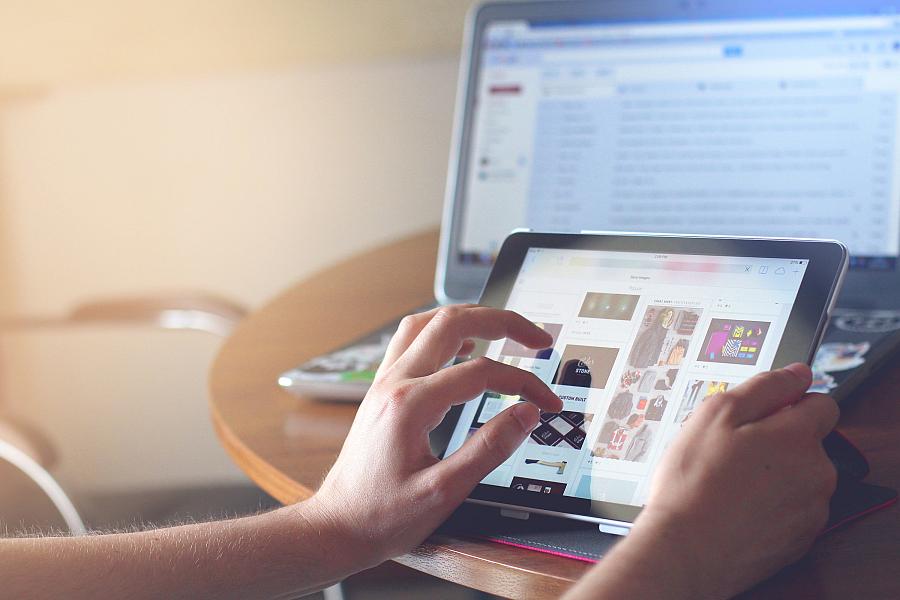The incredible ways digital technology is changing health care

Remember the old days of diagnosing yourself online? From frantically googling your aches and pains to clicking around on WebMD’s interactive Symptom Checker, early digital health resources often left us high and dry, with incomplete - or worse, inaccurate - information. Digital healthcare has come a long way since then. In 2015, about $4.5 billion was spent on venture capitalist funding for apps and other technology that can change the ways we keep ourselves healthy. After all, if you can have food delivered to your door within minutes, shouldn’t you be able to assess your general well-being just as quickly? Here’s a look at the some of the top areas in which digital technology is changing (or has already changed) the healthcare industry.
Women’s health
Even in the real, analog world, too few medical providers are tuned into the unique health concerns of women. Seeking to address this gap in services, many entrepreneurs are (many of them female) developing technology specifically for women’s health.
-
Clue is a mobile app that allows women to track their periods and ovulation. Built in is an algorithm that takes the user’s submitted data and analyzes it to predict the patterns of her cycle. With plenty of researched FAQs to accompany the self-reported data, Clue is all about empowering women with science, rather than pandering with flowery graphics - their tagline is “Confident. Scientific. Not Pink.”
-
Polaris is another tool that helps track ovulation, but with a greater emphasis on fertility and genetics. Intended for use by fertility and OB/GYN clinics and their patients, Polaris has teamed up with genome-mapping database 23andMe to compare women’s genetic profiles to worldwide averages in order to identify abnormalities that might lead to infertility. Polaris also uses these statistical comparisons to predict an individual woman’s likelihood of conception - and to make recommendations about different methods that might offer the greatest chance of success.
-
Still in development, Grow is an app aimed at women who make health decisions not only for themselves but also their families. With a focus on pediatrics, Grow lets moms track and organize family health milestones and helps them make more educated daily choices about healthy habits. The app also lets women know about helpful resources that might be available from their family health care plan or other health sponsors.
Mental health
Mental healthcare has become increasingly mainstream in recent decades. As people take advantage of opportunities to stay mentally as well as physically healthy, a number of digital options have emerged to allow for round-the-clock access.
-
Silver Cloud Health is an all-in-one service that allows licensed professionals to provide behavioral therapy to patients struggling with anxiety, depression, eating disorders and other mental health issues. Developed at Trinity College in Dublin, Ireland, Silver Cloud can be used as a standalone service for users seeking help with a specific need, or as a complement to traditional in-person therapy sessions. This new “teletherapy” has the advantage of having counselors and therapists help more people than they might otherwise be able to.
-
AbilTo is an option for people who may have recently undergone a major medical diagnosis or serious operation and need help coping with the stress or anxiety that follows. By evaluating each patient’s specific needs, AbilTo’s professionals offer a personalized 8-week program to help reduce the mental burden and to focus on getting and staying healthy.
-
BetterHelp is a text message-based smartphone app that allows you to connect with a mental health professional on demand. For a flat rate, users can fill out a survey and be matched with an experienced therapist who can help explore the nature of the problem at hand. Although BetterHelp is not suited to help in moments of psychic crisis, users report relief after either shorter or longer-term use; for an increased fee, sessions over the telephone are also available.
Self-care
Although there’s no substitute for professional medical care and advice, several companies are developing technology that gives patients more direct, immediate insight into their everyday health.
-
Vital sign trackers like FitBit and Jawbone UP have made a huge splash in personal health, giving users the ability to track their rate of mobility. Great for those who spend most of the workday sitting down, these wristbands will provide a gentle occasional reminder to get up and walk around. The wristbands plug right into your smartphone, allowing you to upload daily data and chart your progress over time.
-
Cue is an advanced but affordable piece of home-testing hardware that allows users to monitor and analyze indicators of health like vitamin D, testosterone, and inflammation - all by collecting a saliva sample and putting it into a small computerized cartridge. The testing kit analyzes your bio-samples and sends the results to any compatible smartphone, displaying an immediate assessment of your health and some recommendations for improvement.
- ProX is an app developed by Chris Anderson and measures protein intake, carbs and fat intake while developing a customized meal plan for athletes with options to gain muscle, lose weight or maintain body composition.
-
Insomnia and poor sleep are linked to a range of different health issues like depression and heart disease. Sleep Cycle is an app that can improve sleep by using your smartphone’s built-in motion detector to track nightly sleep patterns. Just lay your phone next to you or slip it under your pillow before bed and Sleep Cycle uses data on the length of your Rapid Eye Movement cycles to trigger an alarm that will wake you up calmly and easily, while you’re in a shallow sleep phase.
In the future, groundbreaking digital developments in personal health will become increasingly relevant to global health challenges. Developers foresee an increase in portable technology that will address issues like communicable disease and health care access for those without insurance. As diverse as the landscape looks right now, the digital health revolution is really just beginning.
